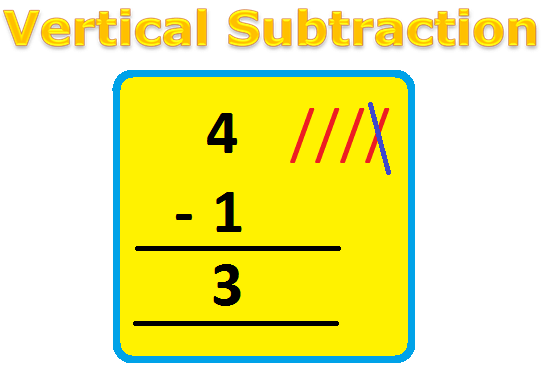Problems on Rationalizing the Denominator
In the previous topics of rational numbers we have learnt to solve the problems regarding the fractional numbers, i.e., the numbers that have real numbers in their denominators. But we haven’t seen much problems regarding those fractions which have irrational numbers in their denominator. Yet I the topic of rationalization we have seen few examples on how to rationalize denominators. Under this topic we’ll see more problems regarding the calculations of rationalization of denominators. Below are given some examples on how to rationalize the complex denominators and proceed further to solve the problems involving these types of complex denominators:-
1. Rationalize 1√11.
Solution:
Since the given fraction has an irrational denominator, so we need to rationalize this and make it more simple. So, to rationalize this, we will multiply the numerator and denominator of the given fraction by root 11, i.e., √11.So,
1√11 × √11√11
⟹ √1111
So, the required rationalized form of the given denominator is:
√1111.
2. Rationalize 1√21.
Solution:
The given fraction has an irrational denominator. So, we need to make it simple by rationalizing the given denominator. To do so, we’ll have to multiply and divide the given fraction by root 21, i.e., √21.So,
1√21× √21√21
⟹√2121
So the required rationalized fraction is:
√2121
3. Rationalize 1√39.
Solution:
Since the given fraction has an irrational denominator in it. So, to make the calculations more easy we need to make it simple and hence we need to rationalize the denominator. To do so, we’ll have to multiply both the numerator and denominator of the fraction with root 39, i.e., √39. So,
1√39× √39√39
⟹√3939
So, the required rationalized fraction is:
√3939.
4. Rationalize 14+√10.
Solution:
The given fraction consists of irrational denominator. To make the calculations more simplified we will have to rationalize the denominator of the given fraction. To do so, we’ll have to multiply both numerator and denominator by conjugate of the given denominator, i.e., 4−√104−√10. So,
14+√10× 4−√104−√10
⟹4−√1042−√102
{(a+ b)(a-b) = (a)2 - (b)2}
⟹4−√1016−10
⟹ 4−√106
So the required rationalized fraction is:
4−√106.
5. Rationalize 1√6−√5.
Solution:
Since the given fraction has irrational denominator in it. So, to make it more simplified we will have to rationalize the denominator of the given fraction. To do so, we’ll have to multiply both numerator and denominator of the fraction by √6+√5√6+√5. So,
1√6−√5× √6+√5√6+√5
⟹ √6+√5√62−√52
{(a+ b)(a-b) = (a)2 - (b)2}
⟹ √6+√51
⟹ √6+√5
So, the required rationalized fraction is:
√6+√5
6. Rationalize 2√11−√6.
Solution:
Since, the given fraction has irrational denominator in it which makes the calculations more complex. So, to make them more simplified we’ll have to rationalize the denominator of the given fraction. To do so, we’ll have to multiply both numerator and denominator of the given fraction with √11+√6√11+√6.
So,
2√11−√6×√11+√6√11+√6
[(a + b)(a - b) = (a)2 - (b)2]
⟹2×(√11+√6)√112−√62
⟹ 2×(√11+√6)11−6
⟹ 2×(√11+√6)5
So, the required rationalized fraction is:
2×(√11+√6)5.
Irrational Numbers
Definition of Irrational Numbers
Representation of Irrational Numbers on The Number Line
Comparison between Two Irrational Numbers
Comparison between Rational and Irrational Numbers
Problems on Irrational Numbers
Problems on Rationalizing the Denominator
Worksheet on Irrational Numbers
From Problems on Rationalizing the Denominator to HOME PAGE
Didn't find what you were looking for? Or want to know more information about Math Only Math. Use this Google Search to find what you need.
Recent Articles
-
Worksheet on 12 Times Table | Printable Multiplication Table | Video
Mar 23, 25 10:28 AM
Worksheet on 12 times table can be printed out. Homeschoolers can also use these multiplication table sheets to practice at home. -
Vertical Subtraction | Examples | Word Problems| Video |Column Method
Mar 22, 25 05:20 PM
Vertical subtraction of 1-digit number are done by arranging the numbers column wise i.e., one number under the other number. How to subtract 1-digit number vertically? -
Worksheet on 11 Times Table | Printable Multiplication Table | Video
Mar 22, 25 05:08 PM
Worksheet on 11 times table can be printed out. Homeschoolers can also use these multiplication table sheets to practice at home. -
Worksheet on 10 Times Table | Printable Multiplication Table | Video
Mar 21, 25 03:46 PM
Worksheet on 10 times table can be printed out. Homeschoolers can also use these multiplication table sheets to practice at home. -
5th Grade Prime and Composite Numbers | Definitions | Examples | Math
Mar 21, 25 12:18 AM
5th grade prime and composite numbers





New! Comments
Have your say about what you just read! Leave me a comment in the box below. Ask a Question or Answer a Question.